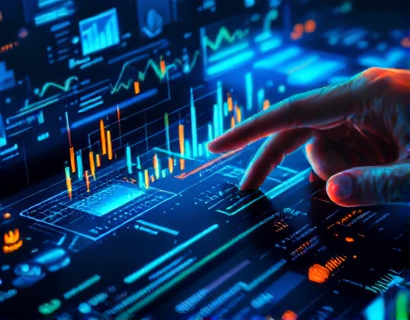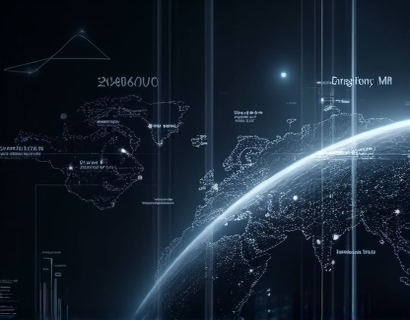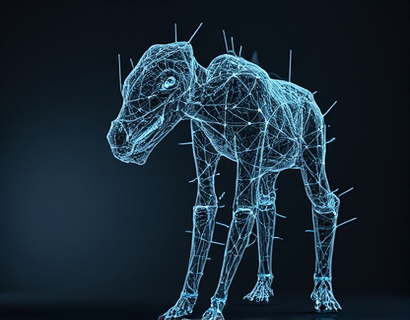Maximizing Aquaponics Business Success with Advanced Management Software
In the rapidly evolving world of sustainable agriculture, aquaponics stands out as a promising method that combines fish farming and hydroponic plant cultivation in a symbiotic environment. For aquaponics businesses, managing the intricate balance between water quality, fish health, and plant nutrition is crucial for success. The integration of cutting-edge management software can significantly enhance the efficiency, productivity, and sustainability of these operations. This article delves into how advanced software solutions can transform aquaponics management, providing precise monitoring, control, and optimization to ensure a thriving ecosystem.
Understanding the Challenges in Aquaponics Management
Aquaponics systems are complex, involving the interplay of biological, chemical, and physical processes. Maintaining optimal conditions for both fish and plants requires constant monitoring and adjustments. Traditional management methods often rely on manual measurements and observations, which can be time-consuming and prone to human error. These challenges can lead to suboptimal growth conditions, reduced yields, and increased operational costs. To overcome these issues, aquaponics businesses need sophisticated tools that can automate and streamline their operations.
Key Features of Advanced Management Software
Modern management software for aquaponics is designed to address these challenges by offering a suite of advanced features. These tools provide real-time data collection and analysis, enabling farmers to make informed decisions quickly. Some of the key features include:
- Real-time monitoring of water parameters such as pH, temperature, dissolved oxygen, and ammonia levels
- Automated control systems for adjusting pumps, filters, and aerators
- Growth tracking and yield prediction for both fish and plants
- Integrated reporting and analytics to identify trends and optimize operations
- Alerts and notifications for maintaining optimal conditions and preventing issues
These features collectively contribute to a more efficient and reliable aquaponics system, reducing the risk of crop failure and ensuring consistent production.
Precision Monitoring and Control
One of the most significant advantages of advanced management software is its ability to provide precise monitoring and control of the aquaponics environment. By continuously tracking water parameters, the software ensures that conditions remain within the ideal range for both fish and plants. For instance, if the pH level drops below the optimal range, the system can automatically trigger adjustments to restore balance. This level of precision is crucial for maintaining the health and productivity of the aquaponics ecosystem.
Moreover, automated control systems can schedule and execute tasks such as feeding, water circulation, and nutrient dosing at precise intervals. This automation not only saves time but also ensures that these critical tasks are performed consistently and accurately, reducing the likelihood of human error.
Enhancing Productivity and Yield
By optimizing the growing conditions and automating routine tasks, advanced management software directly contributes to increased productivity and higher yields. Precise monitoring allows farmers to identify and address issues before they impact crop health, leading to more robust and vigorous plants. Similarly, for fish, maintaining optimal water conditions promotes faster growth and better health, resulting in higher biomass and profitability.
Additionally, the software's growth tracking and yield prediction features enable farmers to plan their operations more effectively. By analyzing historical data and current trends, farmers can make informed decisions about harvest timing, resource allocation, and market strategies. This data-driven approach helps maximize the overall efficiency of the aquaponics business.
Promoting Sustainability and Environmental Stewardship
Sustainability is a core principle of aquaponics, and advanced management software plays a vital role in promoting environmentally friendly practices. By optimizing resource use and minimizing waste, these tools help reduce the ecological footprint of aquaponics operations. For example, precise nutrient management ensures that excess nutrients are minimized, preventing runoff and contamination of surrounding water bodies.
Furthermore, the software's ability to monitor and control energy consumption can lead to significant savings and a reduced carbon footprint. Automated systems can adjust energy usage based on real-time needs, ensuring that resources are used efficiently. This not only benefits the environment but also lowers operational costs, making the business more viable in the long term.
Integration with Other Farming Technologies
The true power of advanced management software in aquaponics is its ability to integrate with other farming technologies and systems. Modern software solutions can connect with sensors, IoT devices, and even drone technology to create a comprehensive and interconnected farming ecosystem. This integration allows for a holistic approach to farm management, where data from various sources is centralized and analyzed to optimize overall performance.
For instance, integrating weather data can help farmers anticipate and prepare for environmental changes, adjusting the aquaponics system proactively. Similarly, connecting with market data can inform pricing and sales strategies, ensuring that the business remains competitive and profitable.
Case Studies and Real-World Applications
Several aquaponics businesses have successfully implemented advanced management software, achieving remarkable results. One such example is a medium-sized aquaponics farm in the Midwest, which adopted a comprehensive management system to monitor and control their operations. Within six months, the farm saw a 30% increase in fish yield and a 25% increase in plant productivity. More importantly, the farm reported a significant reduction in energy consumption and resource waste, aligning with their sustainability goals.
Another case study involves a large-scale commercial aquaponics operation in California. By integrating real-time monitoring and automated control systems, the farm was able to reduce labor costs by 40% and improve product quality consistently. The data-driven insights provided by the software enabled the farm to optimize their crop rotation and harvesting schedules, leading to a 20% increase in annual revenue.
Challenges and Considerations
While the benefits of advanced management software are clear, there are several challenges and considerations that aquaponics businesses should be aware of. First, the initial investment in software and hardware can be substantial. However, the long-term savings and increased productivity often justify the upfront costs. It's essential for businesses to conduct a thorough cost-benefit analysis to ensure the investment aligns with their financial goals.
Another consideration is the need for training and technical support. Implementing advanced software requires a certain level of technical expertise, and farmers may need to invest in training for their staff. Many software providers offer comprehensive training programs and ongoing support to help businesses transition smoothly.
Future Trends in Aquaponics Management Software
The field of aquaponics management software is rapidly evolving, with new technologies and innovations on the horizon. One emerging trend is the use of artificial intelligence (AI) and machine learning to further enhance decision-making processes. AI can analyze vast amounts of data to identify patterns and predict outcomes, providing even more precise recommendations for optimizing the aquaponics system.
Another area of development is the integration of blockchain technology for traceability and transparency. By recording every step of the production process on a blockchain, businesses can ensure the authenticity and quality of their products, building trust with consumers and meeting regulatory requirements.
Conclusion
Advanced management software is a game-changer for aquaponics businesses, offering a range of benefits that enhance efficiency, productivity, and sustainability. By embracing these tools, aquaponics farmers can overcome the challenges of managing complex systems and achieve greater success in their operations. As the industry continues to grow and evolve, the adoption of cutting-edge management software will be essential for staying competitive and contributing to a more sustainable future.










































